
A big head of steam is building behind “Let’s Connect,” the multi-pronged fundraising campaign begun a couple of months ago by Perry-area people eager to see the connector trail built between the High Trestle Trail in Woodward and the Raccoon River Valley Trail in Perry.
While the “Let’s Connect” campaign is only a few weeks old, efforts toward connecting the two heavily traveled bike trails — the first- and fifth-most popular routes in all the Central Iowa Trail Network, according to the Des Moines Area Metropolitan Planning Organization — have been in the works for several years.
“It’s kind of one of those deals where nothing happens, nothing happens and then — zoom! — you’re off to the races,” said Mike Wallace, executive director of the Dallas County Conservation Board, which is building the connector trail.
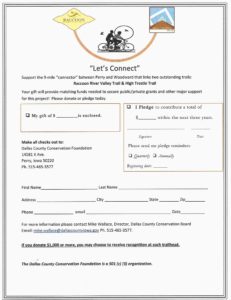
The short-term goal of “Let’s Connect” is to raise $250,000 by Labor Day, Monday, Sept. 5.
The “Let’s Connect” donor packet contains background on the project, including details of the money raised so far from state and federal recreational trails grants, other public funding sources and private donations. A donation form is also included in the packet.
That $250,000 represents only 5 percent of the estimated $5 million needed to build the nine-mile connector trail, but the dollars will be matched three-to-one by a State Recreational Trail Grant, and the total will go toward construction of the first section of trail: along the abandoned Chicago and Northwestern Railroad line between 18th Street in Perry and 130th Street in county territory.
The campaign got a big shot in the arm in June when an anonymous donor pledged $100,000 in matching funds. The “Let’s Connect” committee now faces the challenge of coming up with its own $100,000 in order to receive the donor’s match.
“It seems like we have some really good, positive momentum going now,” said Kirk VanKirk of Perry, vice president of the Progressive Foundry and an active backer of the connector project. To show their commitment, the VanKirk family donated the land for the first leg of the trail, and Kirk VanKirk himself lined up the anonymous matching-fund donor.
Mary Laborde of Perry, chair of the “Let’s Connect” fundraising committee and a member of the Raccoon River Valley Trail Association, echoed VanKirk’s sentiment. “This early momentum can really spark some enthusiasm,” Laborde said.
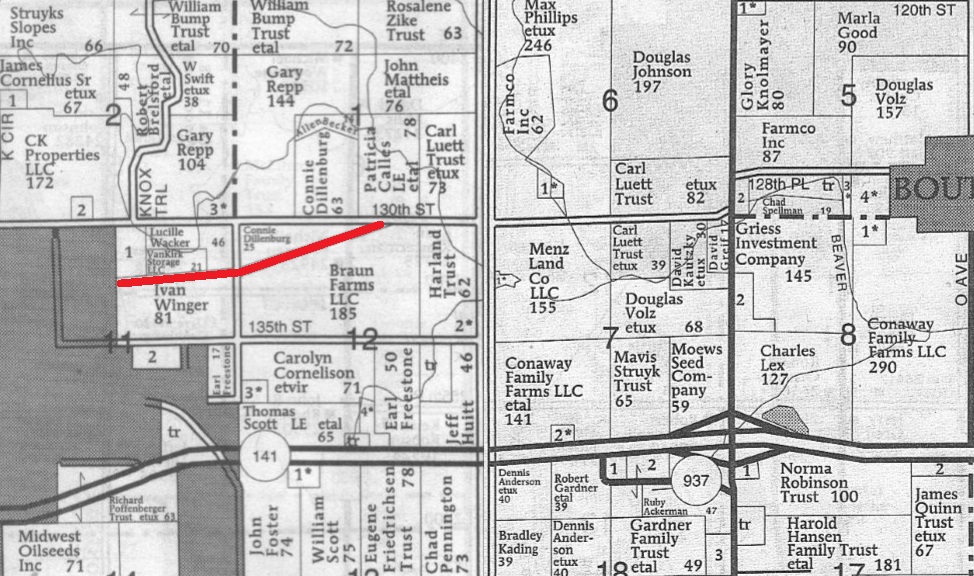
“So far it’s all been kind of theoretical,” Wallace said, “but once people see some dirt being moved and see that this is really happening, there should be a definite uptick in enthusiasm for the project.”
The “Let’s Connect” campaign brings together a number of stakeholders in the project, led by the Dallas County Conservation Board and the Raccoon River Valley Trail Association and including representatives of the cities of Perry and Woodward, local business and industry figures and a number of private parties who see the connector’s potential to spur economic development.
“What’s great about this project is that it brings us all together,” said Perry Mayor Jay Pattee.
The project also got a boost in March, when the Dallas County Board of Supervisors voted to allocate $400,000 to the trail in the Dallas County Conservation Board’s fiscal year 2016-2017 budget. The funds became available to the conservation board July 1.
Dallas County Board of Supervisors Chair Mark Hanson said the connector trail “would be a piece of infrastructure that will be very helpful for Woodward and for Perry. It’s a beginning. It should be done and needs to be done, and we’re willing to put some money up to make it happen.”
“The $400,000 in many, many ways really made a big difference in how we can operate,” Wallace said at the July meeting of the “Let’s Connect” committee. “Even if we weren’t here today and Kirk (VanKirk) hadn’t come up with this fantastic donation from somebody, we’d still have funds earmarked in our budget so we could proceed anyway. Even if knocking on doesn’t work, we’re good to go.”
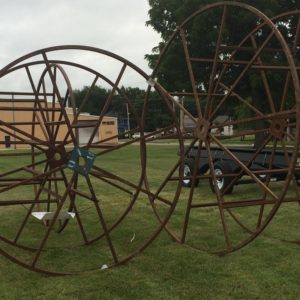
So far the door knocking has worked, with about $52,000 raised toward the $100,000 match. Committee member Cheri Scheib of Perry is supervising the construction of a large steel bicycle to be prominently placed downtown.
The big bike — made with steel salvaged from the recently demolished Hy-Vee Food Store and donated by Reed’s Excavation, spools donated by Michel’s Construction and labor donated by the welders at Wiese Industries — will measure the steady progress toward the fundraising goal.
The connector-trail project already landed more than $500,000 over the last few years in several State Recreational Trail and Federal Recreational Trail grants, but those dollars went toward a feasibility study and preliminary design and engineering work. With the board’s choice of a route in April and construction dollars now starting to flow, the first leg of the trail will soon be a tangible reality for Perry-area residents.
Recent pledges have also come over the last year from the Raccoon Valley Bank ($100,000), the Dallas County Foundation ($60,000), the Bock Family Foundation ($30,000), the Progressive Foundry ($25,000) and Perry Economic Development ($25,000).
The “Let’s Connect” committee is also busy seeking grants from other sources, such as the U.S. Department of Agriculture (USDA). Two USDA programs — the Strategic Economic and Community Development program and the Rural Business Development Grant program — are among the possible sources. Former Perry City Administrator Butch Niebuhr, a “Let’s Connect” member and consultant with the Bolton and Menk engineering firm, is active on the USDA front.
“I thought maybe we could set up a regional group that could access grants or loans from the USDA in order to make that (bike trail) connection happen,” Niebuhr said.
The USDA programs are aimed specifically at regional projects, so the city of Perry, with help from Niebuhr and others at Bolton and Menk, applied for about $20,000 in grant funds for a regional plan embracing Perry, Bouton and Woodward. Perry’s application did not make the cut for state-level funds — applicants requested three times more than was available in the program — but is still in the running for funds in the federal pool.
Once in place, the Perry-Bouton-Woodward regional partnership would have a leg up in chasing funding sources outside the USDA as well, such as dollars from the U.S. Department of Transportation, U.S. Department of Housing and Urban Development or the U.S. Department of Commerce’s Economic Development Administration.
Connecting the two popular trails will mean a big jump in bike tourism in all the towns along the trails. An estimated 417,000 people rode the High Trestle Trail in 2014, and about 330,000 rode the Raccoon River Valley Trail. Those numbers are expected to keep growing, and the economic impact made by so many bicyclists will grow, too.
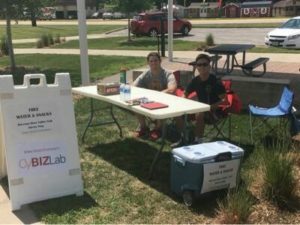
In order to help quantify the size of that economic impact, the Dallas County Conservation Board teamed up with the CyBiz Lab, a student group in the Iowa State University business school that takes on consulting projects.
The CyBiz lab team conducted an online survey of Raccoon River Valley Trail users in May and followed up with field interviews in July at the trail heads in Perry and Waukee.
More than 650 trail users responded to the online survey, according to Joe Gunkelman, CyBiz Lab team leader. Gunkelman said the field surveyors “handed out water and snacks to draw people in and then gave them the survey.”
The survey asked trail users where they got on and off the trail, how much they spent while making their way, how large a group they were in, how many miles they traveled, what activities — such as running, walking, biking, birding, cross-country skiing and so forth — among a number of other questions.
The trail study aims to help enhance the quality, economic value and tourism opportunities of the Raccoon River Valley Trail and its associated communities, Gunkelman said. He said they intend to present a full report to the Dallas County Conservation Board once they have crunched their data.
Make yourself at home! Become a $5-per-month donor to ThePerryNews.com. To get started, simply click the Paypal link below.









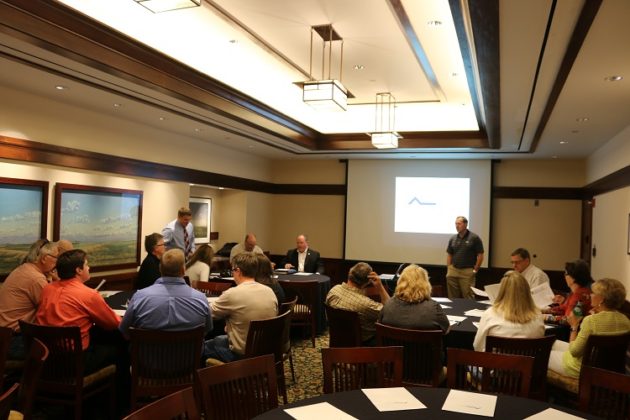
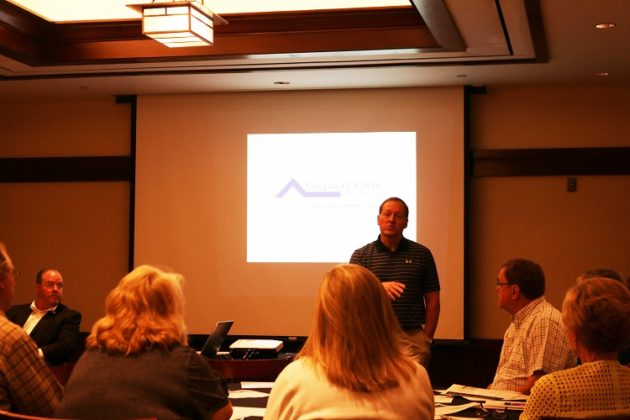
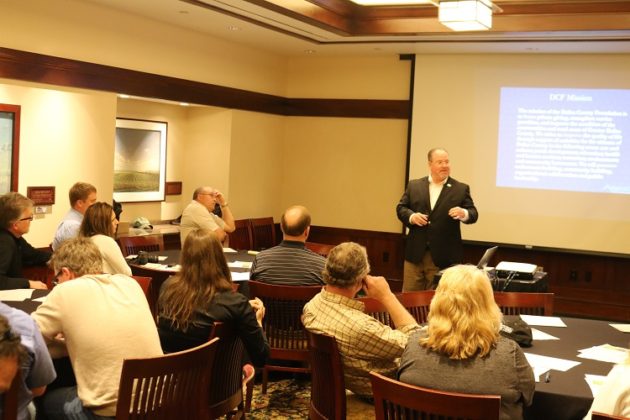
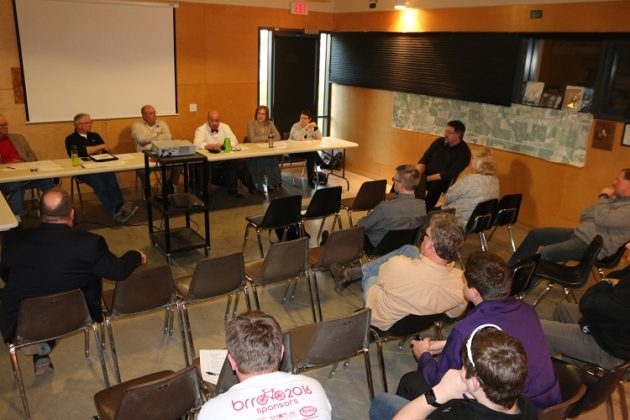
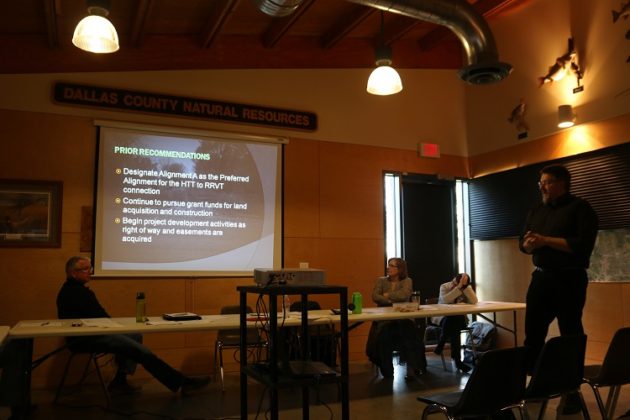
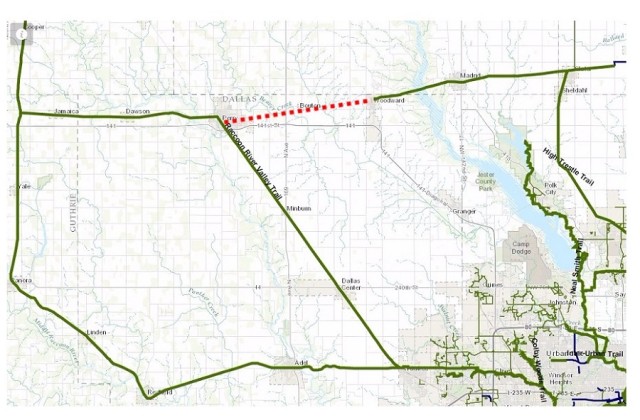
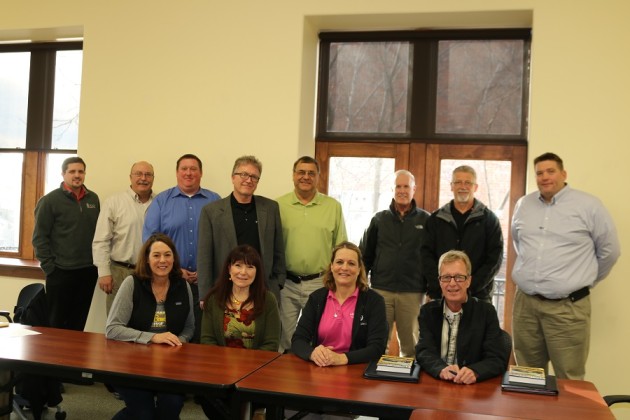
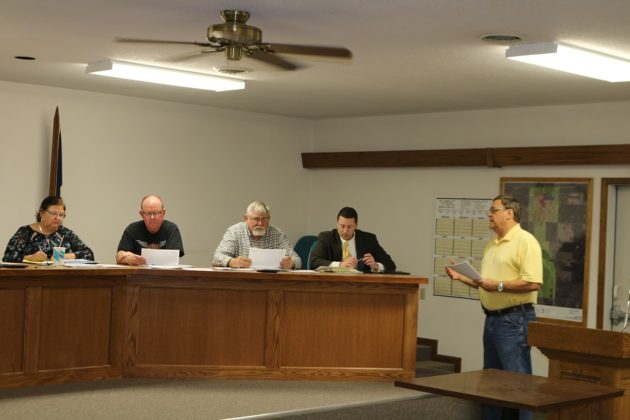
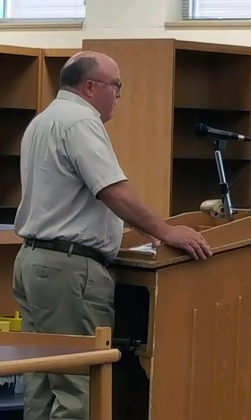
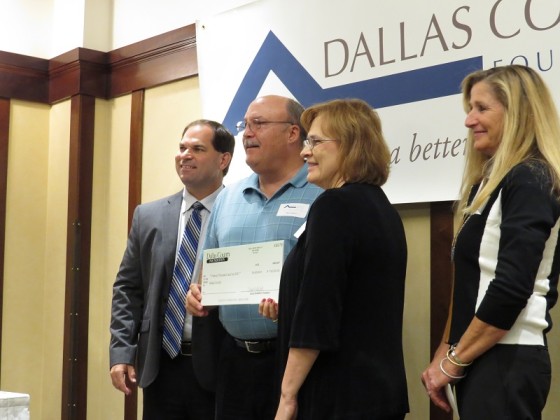
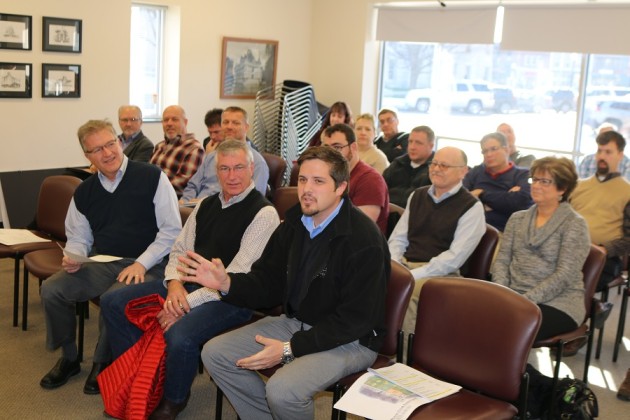
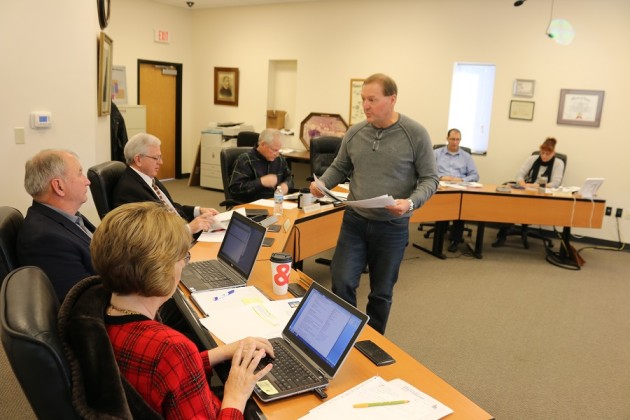
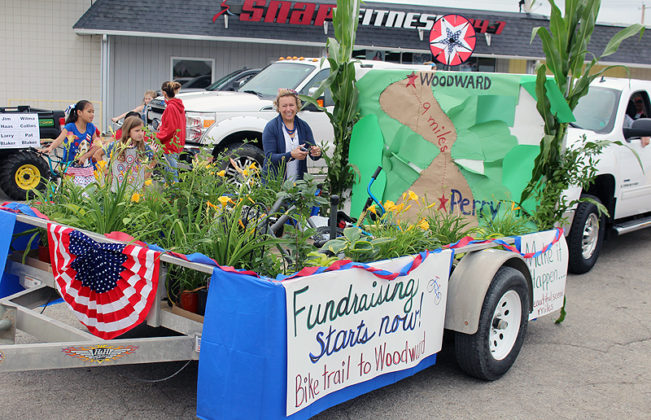
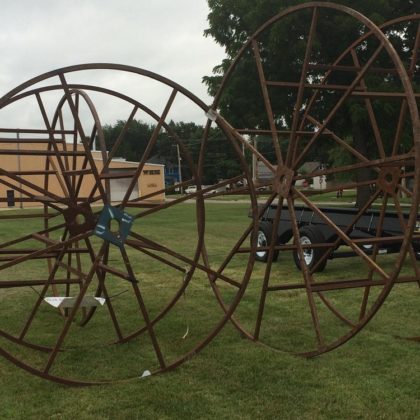
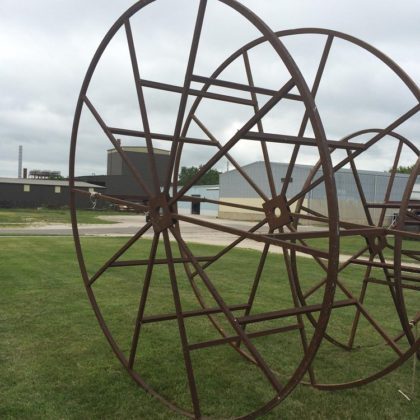
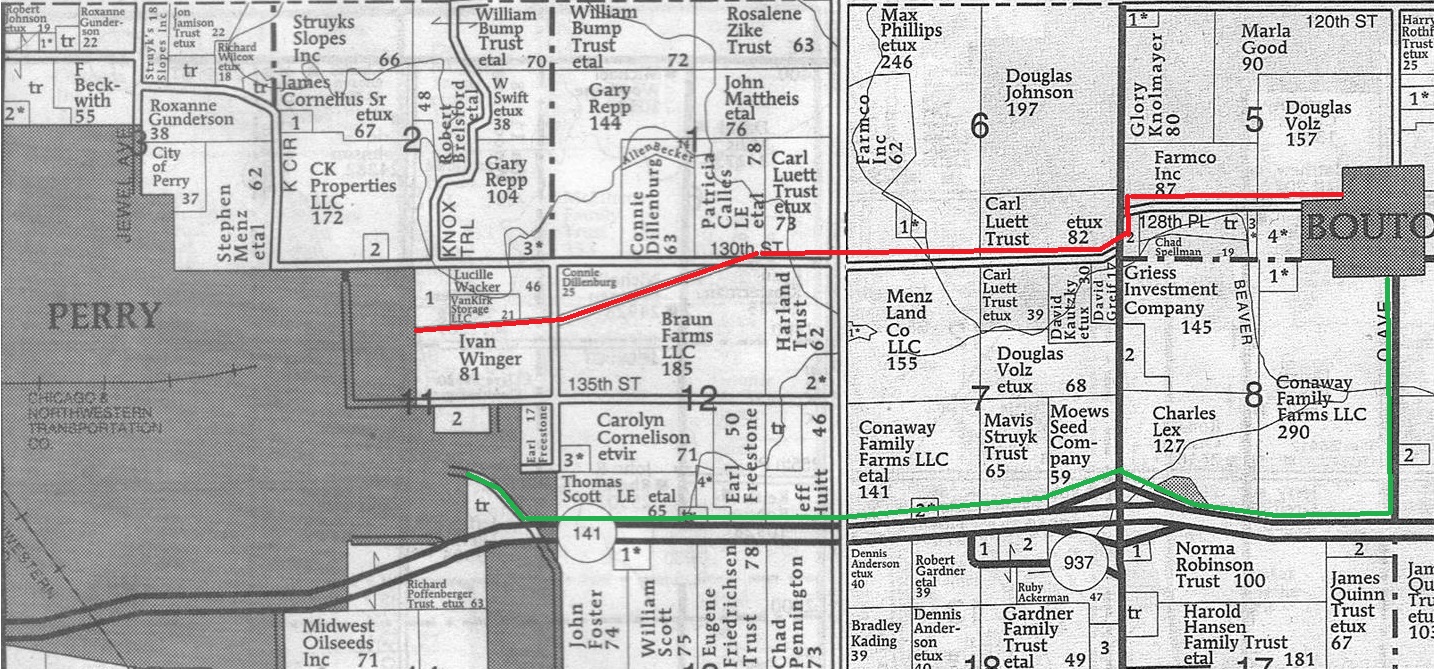
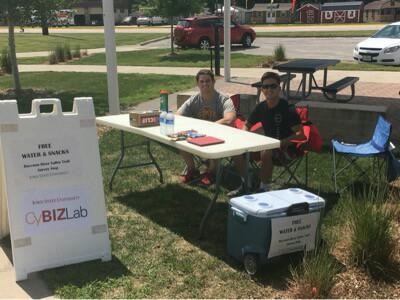
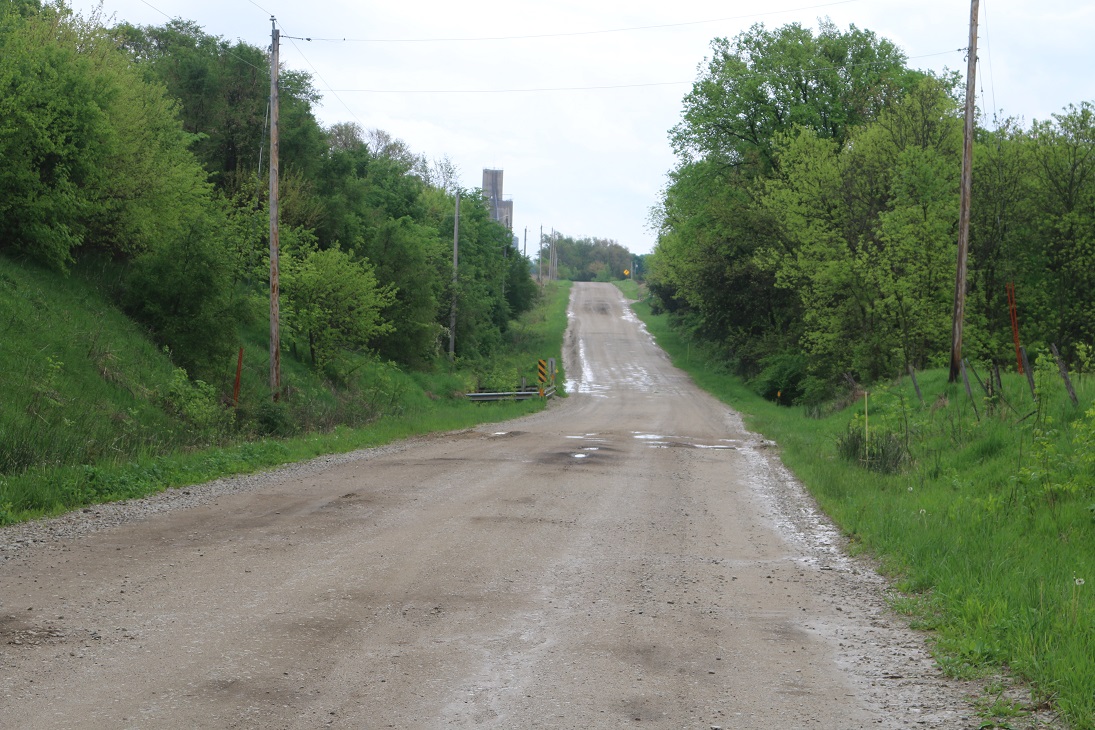







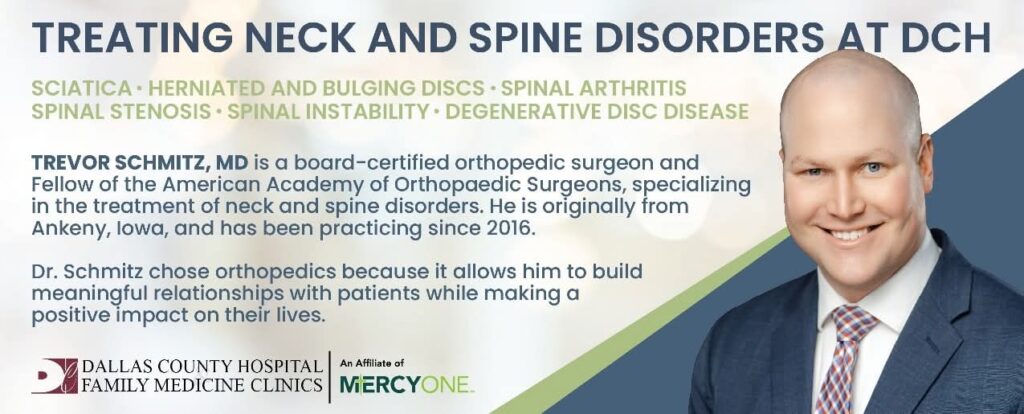
When is their rummage sale?
It was last Thursday and Friday: https://theperrynews.com/lets-connect-garage-sale-set-for-thursday-friday-at-old-walts-store/
There will likely be more to come.